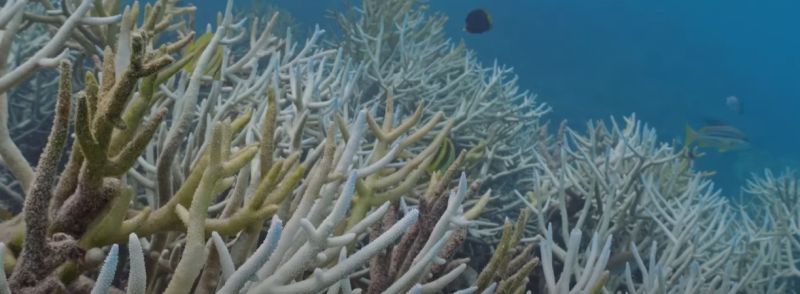 In a new study, published in the journal Nature, scientists say that sea surface temperatures over the past decade in and around Australia’s Great Barrier Reef are the highest on record for 400 years. The study concludes that these increased temperatures, driven by climate change, now pose an “existential threat” to the vast coral reef.
In a new study, published in the journal Nature, scientists say that sea surface temperatures over the past decade in and around Australia’s Great Barrier Reef are the highest on record for 400 years. The study concludes that these increased temperatures, driven by climate change, now pose an “existential threat” to the vast coral reef.
Extreme heat has caused five mass coral bleaching events in the past nine years alone.
“The science tells us that the Great Barrier Reef is in danger – and we should be guided by the science,” Prof Helen McGregor, from the University of Wollongong, told BBC News.
“The recent events in the Great Barrier Reef are extraordinary,” said lead researcher Dr Benjamin Henley, who carried out the study at Wollongong University.
“Unfortunately, this is terrible news for the reef.”
“There is still a glimmer of hope though,” he added. “If we can come together and restrict global warming, then there’s a glimmer of hope for this reef, and others around the world, to survive in their current state.”
Corals have adapted to survive and grow within a specific temperature range – forming a skeleton that provides a living habitat for other marine life.
Corals exist in a symbiotic partnership with a special type of marine plant – a species of algae – which lives inside the coral, providing it with food and giving it its bright color.
Bleaching occurs when sea temperatures rise too high and corals expel their algae, turning white.
“It’s not a pretty sight,” said Dr Henley. “Eventually [other] algae grows on the surface of the white coral, turning it brown.
The Great Barrier Reef is a site of remarkable variety and beauty on the north-east coast of Australia. It contains the world’s largest collection of coral reefs, with 400 types of coral, 1,500 species of fish, and 4,000 types of mollusk.
The reef is currently a Unesco World Heritage site. Scientists hope that this research could persuade the UN organization to change its mind and give the reef official “endangered” status.
Prof McGregor said this “would send a huge signal to the world about how grave the problem is”.
Thanks to Alaric Bond for contributing to this post.
